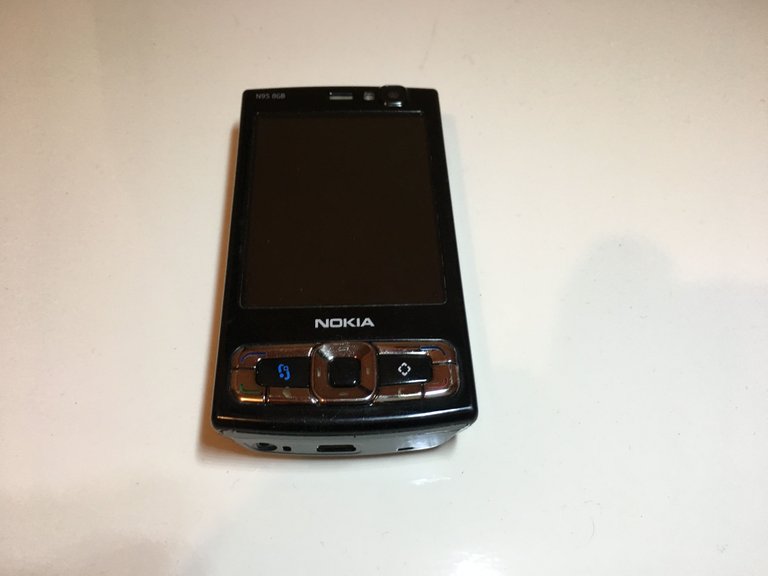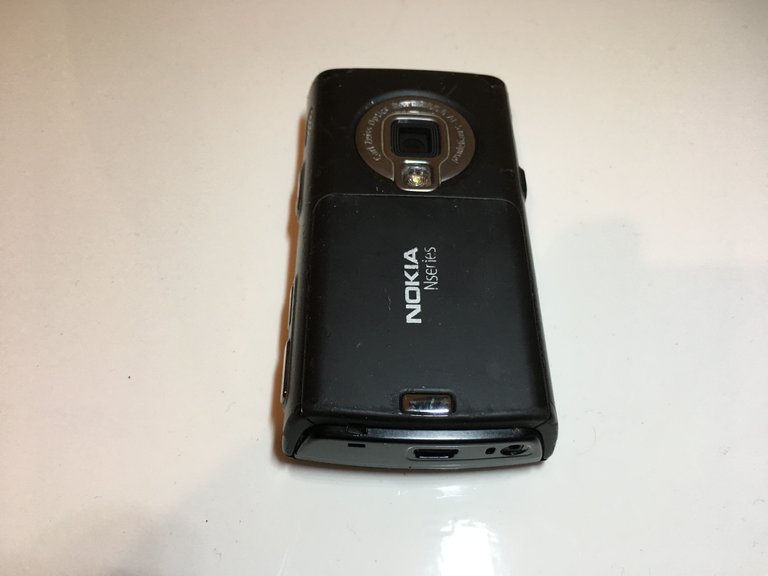We are living in very interesting and exciting times in regards to progress in technology and computing developments. It wasn't too long ago mobile computing was introduced for massive use. Common idea is it all started with iPhone. Mainly it is true iPhone was the real revolution in mobile computing. However Apple wasn't the first in the area. We had Blackberrry being popular in business and legal sector. We also had Nokia a leading company in mobile phones industry, who actually did great progress in bringing mobile computing to mobile phones.
It didn't all really start in 2007, but the progress really accelerated that year for sure.
Main great feature of Blackberry was reliable email and messaging service. Email alone made the workflow of businessman and lawyers so efficient, they were all attached to their Blackberries. Companies were all in and provided their employees with blackberry phones. However Blackberry failed to adjust to the new norms and continued to rely on loyalty of companies and made little effort for innovation. They failed to timely adjust to touch screen technology and were very reluctant in getting rid of physical keyboard from their devices.
Let's talk about Nokia. I have great respect for this company. For a long time they were the leader in the mobile communications sector. Nokia was the real pioneer in mobile computing. They were the first company who actually released mobile phones that had the capabilities equal to computers. Their N95 phones were real innovation. Then made a great progress with the release of N95 8gb phone.
This is my Noika N95 8g that I bought in 2008. I have kept it as a memorabilia, because I was so impressed with the innovation. Don't get me wrong, I am not a hoarder. But this device meant so much to me. Because when I was younger I did imagine of mobile devices that could perform tasks of computer. This was the first step in true mobile computing.

This phone had a 5 megapixel camera. It was the best camera ever made on a mobile phone. Photo and video quality was great. I still have many photos and videos taken on this phone. This was the first phone that had 8mg of memory. This was huge that time. On top of all of this the true first smart phone had wifi and 3G capabilities. That time 3G was big deal. We were still using Edge technology.

I bought this phone for $650 at a discount. This was considered too much for a mobile phone. I was so impressed with it I didn't mind spending that much. After a year or so I upgraded to N97, however since I was so impressed with my old n95 8gb I decided not to sell it and keep it as a memorabilia. I could have sold it for a decent price that time, now it is not really worth anything. I still don't regret it. It reminds me of when the mobile computing revolution really started.
Of course, how can we not mention Apple. iPhone was the real hero and winner in this revolution. Many, including myself doubted in the future of iPhone. Simply people didn't understand the innovation at first. Apple did a great job in multiple ways to lead the way and completely re-imagined how mobile computing is done for all. Many laughed, including big companies like Microsoft. History shows us Apple has reached tremendous success with their iPhone line and then addition iPad and creating a new category.
Why was Apple successful
They went all in for something they believed in. All of Apple power was behind iPhone product. That time first generation iPhone was a great innovation, although now nobody would really use it. Hardware design and software integration was absolutely genius.
Apple was had success in iPod product line with music industry. Utilizing that with mobile phone made it even more convenient for consumers.
App Store. Apple made a big bet on freelance developers by creating an App Store for developers to create apps and giving the tools to do so.
Multi-touch. This technology was probably the best feature of all. It was such a read innovation that it was natural for people to use and fall in love with.
Marketing. This kind of innovation needs massive marketing to reach masses. Apple was a company who could afford it and do it in a way that would truly capture attention. Remember those days when everybody was saying there is an app for everything? Those days it was just a hype, but nowadays we are actually living that reality.
Why did Nokia and Microsoft fail ?
As I mentioned earlier, Nokia was the pioneer in mobile computing devices. Their N lines were absolutely mind blowing and were great innovation. They didn't lack skills in software either. Their Symbian operating system was of world class level.
First of all Nokia although the pioneer in mobile computing devices, and mobile phones in general, they failed to adapt to touch screen technologies. While Apple and other were using capacitive screen technology, Nokia was stubborn to stick to resistive screen technology. On top of this Nokia didn't want to get license for multi-touch technology. So you didn't have multi-touch functionality in Nokia devices.
Nokia started using touch screen with N97 phone. I have used it for a while before I switched to iphone. It was Nokia's first attempt to catch up with the innovation in touch screen mobile technologies. However, they failed miserably.
That was not the end of Nokia yet. Because Microsoft later, since their Windows Phone lines failed, decided to buy Nokia and re-emerge stronger with combining strength of these two companies. I should mention before this, Microsoft failed to get into mobile music business with their Zune music devices. This device was discontinues because they failed.
After Microsoft acquired Nokia, they started making great Lumia phones that ran on Microsofts mobile tile operating system. Phones were great, however they were too late to the market. They spent a lot of money but were unsuccessful to gain some market share. Now Lumia phones no more. Instead of laughing at early stages they had to innovate.
Google and Samsung
Well, other winners in these corporate wars were Google and Samsung. Google sensing a next big thing immediately created their mobile operating system Android. What made it really successful was that it was free. Any company could use it, all they had to do is build the hardware and get Android operating system for free.
Google didn't care much about licensing Android, as Googles' primary business is search engine and advertising they were more interested not to miss out on users in new emerging mobile platforms. That was a very smart move. There are rumors that Eric Schmidt, Google's CEO of those times had inside knowledge of iPhone development and played major role in creating Android as a competition.
Regardless, what companies say, creation of Android was a big win for consumers. Because competition motivate innovation and makes prices somewhat cheaper for consumers. Many company used and still use Android for their hardware. But true winner out of all was Samsung with their Galaxy line. They tried other phones as well. But the winner was the Galaxy.
Court documents revealed that Samsung was actively working on copying some feature of iPhone's operating system, and there were internal company memo's stating instructions to teams to come up with icons and UI similar to iPhones. That was for earlier version of Galaxy phones. Foul play or not it was a smart business play on part of Samsung. Even if they lost some court cases, what they had to pay as a penalty is nothing compared to what they have gain as far as market gains and profits.
Today, in mobile devices sector, real true leader and Apple and Samsung. I personally had a hard time to switching to Android. Believe me I tried, but I couldn't. I know people who tried to switch from Android to Apple, but they couldn't either. I guess people are used to certain operating systems. They both are so advanced, I believe today both accomplish tasks in a great way, and in their own way.
I like all of technology and happy to see competition. That encourages innovation and competition. However, I and my family are so into Apple now, our technology ecosystem is basically all Apple. Apple computers, iphones, ipods, ipads, etc. Main reason is how all devices integrate well with each other and that makes it continent to use them all.
In conclusion, I would like to express my excitement in the anticipation of iPhone 8. Since this will be the 10th iphone and 10 year anniversary for iPhone, I hope to see some great innovations. Thank you for reading. Your upvotes and support means a lot to me. Steem On.

Nice Post.
Nokia N95 Was The Beast Of All At That Time,
I Love To Play N-GAGE Games On It 🙂
Good oooooo
those were awesome
Very well said! I am currently a shameless supporter of Samsung, and a believer that they still have a lot more to offer... maybe in the future (without the whole issue of ever copying iPhone).
I have to agree with you though. N95 was definitely awesome! 😁 (I was still really young then, but it was so complex that time that owning one felt like a huge opportunity.) Awesome write-up btw. 👍😊
Thank you. Samsung did that in early stages. Now they are innovators of their own. Apple kinda copied them in making larger phones now.
It feels like big parts of mobile innovation is over now and we are moving on to new revolution with virtual and augmented reality. Will be interesting to see how things will turn out.
Thanks again.
That's true, and I agree. It's going to be interesting. :)
Companies that fail to innovate and keep up with the times will eventually fail.
Peace, Abundance, and Liberty Network (PALnet) Discord Channel. It's a completely public and open space to all members of the Steemit community who voluntarily choose to be there.Congratulations! This post has been upvoted from the communal account, @minnowsupport, by geekgirl from the Minnow Support Project. It's a witness project run by aggroed, ausbitbank, teamsteem, theprophet0, and someguy123. The goal is to help Steemit grow by supporting Minnows and creating a social network. Please find us in the
If you like what we're doing please upvote this comment so we can continue to build the community account that's supporting all members.